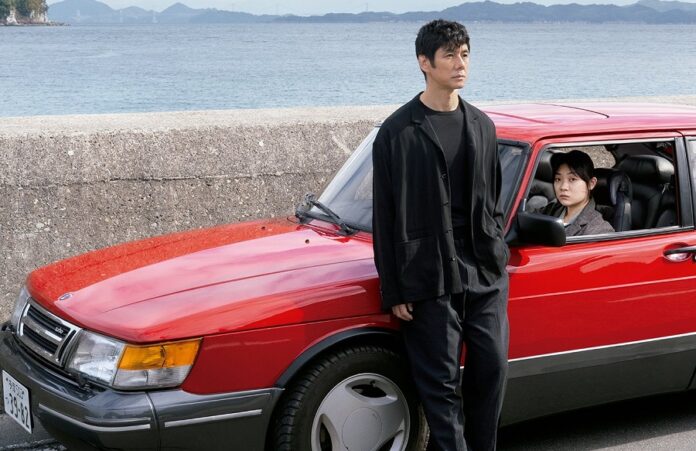CHENNAI: An exquisitely mysterious movie about grief and pain expressed through long silences, “Drive My Car” comes from Japanese auteur Ryusuke Hamaguchi’s stable of some great work and some not so.
His offbeat romance “Asako I & II” at Cannes three years ago was not received well, but his co-written (with Kiyoshi Kurosawa) period thriller “Wife of a Spy” earned a trophy at the Venice Film Festival in 2020. And the following year at Berlin, his “Wheel of Fortune and Fantasy” clinched the Silver Bear.
His latest, “Drive My Car” — competing for Oscars in direction, best picture and best international feature — is certainly for the festival and art-house circuit.
“Drive My Car” is nominated for three Oscars. Supplied
It is about the language of theater, of love and loss told in a very ponderous sort of way but so gripping it managed to hold our attention despite its 179 minutes.
A profound mix of theater and cinema, Hamaguchi’s work is scripted along with Takamasa Oe, and based on legendary Japanese author Haruki Murakami’s short story of the same name.
Though faithful to the source material, Hamaguchi takes several turns by adding newer locations, secondary characters and their heartrending stories.
The film, which is streaming on HBO Max, follows a grieving director and actor Kafuku (Hidetoshi Nishijima) as he directs a multilingual production of Anton Chekhov’s “Uncle Vanya” in Hiroshima with a cast of Korean, Japanese and Chinese actors. Long sequences of casting may appear repetitive but on a closer examination each comes with its minute differences.
The film is based on legendary Japanese author Haruki Murakami’s short story of the same name. Supplied
The insurance company which oversees the stage production requires Kafuku to hire a driver for his blood-red Saab car, and a chain-smoking, grumpy Misaki (Toko Miura) is assigned for this. Dramatically, the car becomes an extension of Kafuku’s life and work, and its closed space turns alluringly impactful.
It is engrossing the way Hamaguchi transforms the vehicle into a platform where both Kafuku and Misaki reveal their innermost desires and sufferings. She has her own unhappy family history. Cinematographer Hidetoshi Shinomiya’s lens captures the grief and pain of the two, and the vehicle appears like a bright insect against the grey, barren landscapes it traverses.
An emotionally aching epic which ends though on a promise of brighter times, banishing the sorrow and gloom with one brief stroke in its climax.

